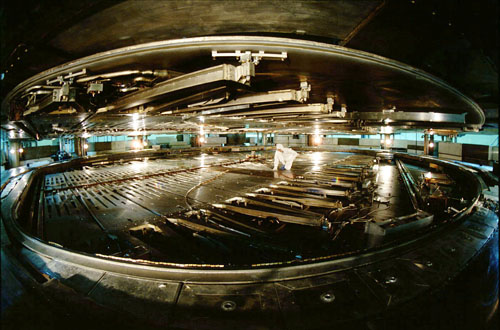
How do exploding stars create the stuff of the universe? New record-setting experiments late last year involving University of Guelph scientists will help point researchers toward understanding how chemical elements are made in stellar explosions, says Prof. Carl Svensson, Department of Physics.
Along with U of G physics professor Paul Garrett and a Guelph research team, Svensson took part in December in atom-smashing tests that set world records for making neutron-rich isotopes. Scientists hope to use high-intensity beams of these isotopes to learn more about how chemical elements are made in stars, and to produce new radioactive isotopes for diagnosing and treating diseases such as cancer.
The Guelph researchers worked with scientists from Simon Fraser University and TRIUMF, the national subatomic physics laboratory in Vancouver. A TRIUMF news release last month announced that the lab had produced the most intense beams ever of these neutron-rich isotopes, long sought by physicists.
Reiner Kruecken, head of TRIUMF’s science division, said, “This capability opens up a whole new world for discovery. We can now produce isotopes that have a disproportionately large number of neutrons, and we can produce them with intensity like nowhere else and use them for precision experiments.”
That will allow scientists, including the Guelph researchers, to mimic stellar explosions and learn how chemical elements are generated in those blasts. As a first experiment, U of G’s physicists studied the role of isotopes of the element rubidium in that process.
Referring to complicated nuclear reaction processes that lead from one element to another, Svensson said, “We know the starting and ending points, but how did we get from one to the other? TRIUMF can now produce the isotopes that are the intermediate steps.” He and his colleagues are now analyzing experimental results to better understand those processes.
Both Svensson and Garrett are leading teams of scientists building advanced detector systems at TRIUMF to probe nuclear structures and processes.